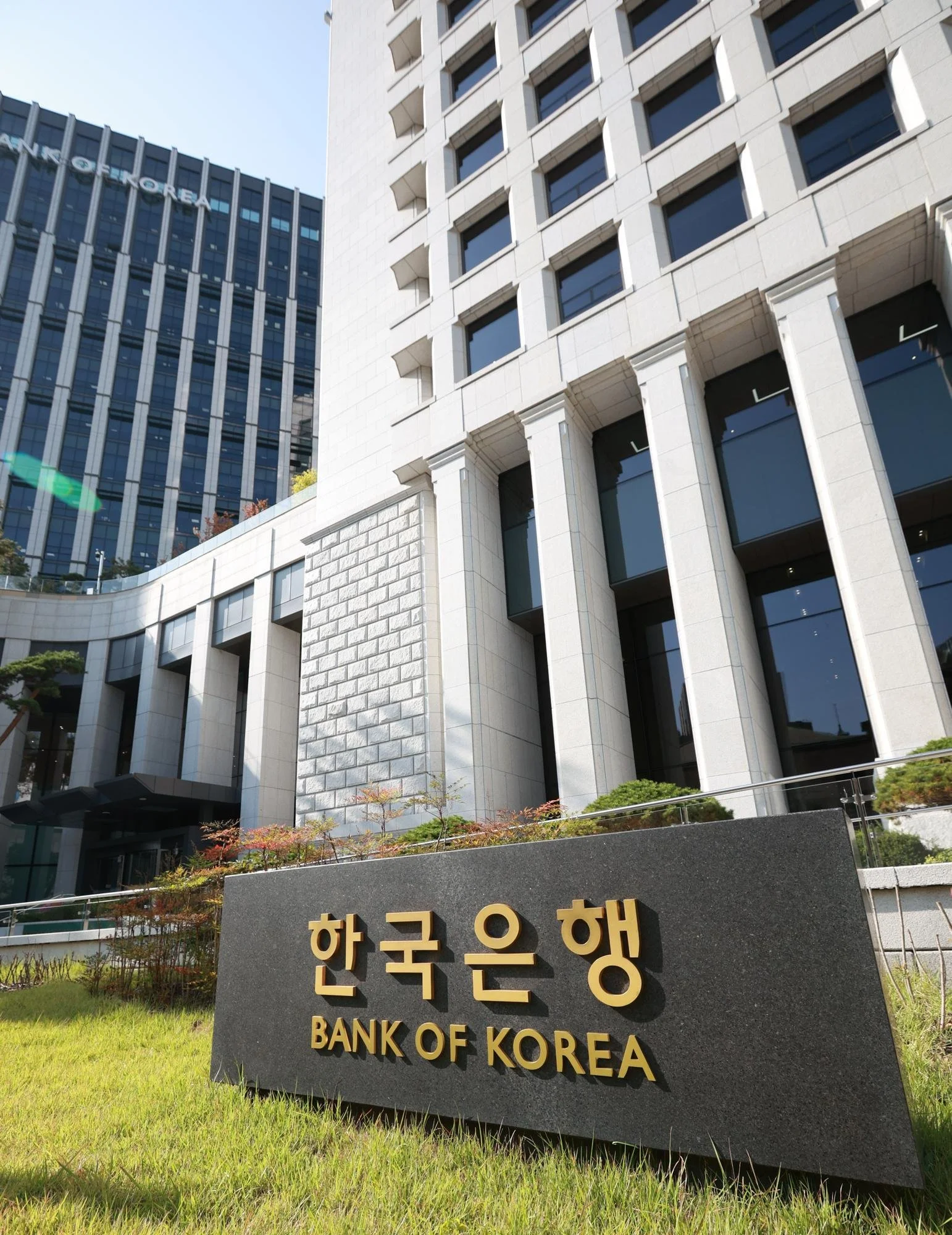Economy – Geopolitics
Reading Power Through Structure
In this section, we decode economic moves and geopolitical maneuvers not as isolated events, but as strategic signals within a collapsing global architecture.
From currency realignments and trade asymmetries to silent capital shifts and symbolic treaties—every article is a window into the logic beneath the surface.
Power doesn’t just act. It signals. And every signal reveals intent.
![🟡 [New Labor Minister Meets SK Chairman Chey Tae-won: AI, Retirement Age, and Flexible Work Discussed]](https://images.squarespace-cdn.com/content/v1/685a879d969073618e9775db/1753407212061-WWQ5OYTNCF4HQDKPBS6X/0000051308_001_20250724200007165.jpg)
🟡 [New Labor Minister Meets SK Chairman Chey Tae-won: AI, Retirement Age, and Flexible Work Discussed]
"The REGEN-K framework is not an austerity manifesto — it is a structurally sequenced blueprint for national regeneration. Every reform proposed is economically viable, symbolically coherent, and socially traceable. It shifts Korea from entitlement-based paralysis to accountability-driven recovery, without sacrificing dignity or truth."
— BBIU Five Laws Integrity Review, July 2025
![🟡 [U.S. Pressures South Korea for $550B Investment: President Lee Holds Emergency Meetings With Chaebol Leaders]](https://images.squarespace-cdn.com/content/v1/685a879d969073618e9775db/1753404368138-LZGGIHDUEZTIWFA0MZOR/0003457625_001_20250725053607025.jpg)
🟡 [U.S. Pressures South Korea for $550B Investment: President Lee Holds Emergency Meetings With Chaebol Leaders]
As global narratives focus on whether Korea will match Japan’s $550B investment deal with the United States, the real story unfolds elsewhere — behind closed doors, where conglomerates and foreign power converge, leaving the state as an observer.
This is not a national investment strategy. It is a corporate realignment masked as geopolitical compliance.
While the Korean government scrambles to frame its sudden outreach to the chaebols as strategic coordination, the underlying structure reveals a silent transfer of sovereignty: the capital is private, the decisions are external, and the state is merely hosting the transaction.
In this new configuration, the chaebols secure autonomy, the U.S. secures assets, and Korea’s symbolic sovereignty becomes the price of alignment.
The pact is not yet signed — but it is already being enacted.

📉 Inflated Recovery? Verifying South Korea’s Q2 GDP Growth Against Industrial Reality
“Despite headlines of a strong Q2 rebound, South Korea’s manufacturing sector tells a different story. While the Bank of Korea reports a 2.7% quarterly surge, official data from KOSIS shows a –2.9% drop in May alone. The recovery may be more statistical than structural.”

🔻 Killing the Cash Cow: Korea’s Fiscal Illusion and the Quiet Destruction of Its Productive Core
In a moment when Korea faces surging energy costs, industrial stagnation, and geopolitical pressure to deploy sovereign capital, the government has chosen to raise the corporate tax rate from 24% to 25%.
It may look minor. But layered upon collapsing SME margins, rising wages, and frozen demand, this 1% increase becomes a structural accelerant — not a solution.
Between 2023 and 2024, nearly 2 million small businesses closed. Electricity costs soared +75.8%, eating up to 21% of production costs for SMEs. Margins evaporated. Most firms didn’t survive long enough to even benefit from delayed tax deductions.
This is not fiscal discipline. It’s a systemic retreat from the productive class. If policymakers are not incompetent, then intent must be assumed. Four hypotheses emerge — and none are innocent.
Korea isn’t overtaxing wealth. It’s taxing survival.

Japan Signs, Korea Drifts: Strategic Consequences of the US–Japan Mega Deal
The U.S.–Japan mega deal, far from signaling a new “Golden Era,” reveals a deeper shift: economic discipline masked as partnership. While Japan complies under executive pressure, South Korea now faces the same model — but with fewer assets, declining growth, and an exodus of industrial power.
As conglomerates migrate abroad and public trust weakens, President Lee must choose between symbolic survival and structural realignment.
At stake is not just a trade balance — but the future of Korea’s economic sovereignty in an era of post-treaty geopolitics.

Not a Collapse — A Coordinated Exit: Hyundai, SK, and the Hidden Realignment of Korea’s Conglomerates
A quiet, coordinated migration is unfolding beneath Korea’s industrial surface.
Hyundai, SK, Samsung, and others aren’t simply shifting production — they are withdrawing symbolic allegiance from a national frame that no longer protects their future.
What we’re seeing is not a disruption.
It’s a soft decoupling.
And when Korea’s conglomerates start packing silently,
they don’t make noise —
but they leave emptiness."

Korea’s Invisible Erosion: When Inflation Rises, But Value Falls
South Korea’s ₩8.6 trillion voucher program may appear as a successful act of fiscal stimulus—swift execution, mass participation, targeted support. But behind the metrics lies a deeper structural signal: the country is inflating internally while devaluing externally. This is not classical inflation. It is symbolic erosion.
In 2025, the price of a Big Mac rose 5.1% in KRW terms but fell in USD terms due to currency depreciation. Korea’s purchasing power dropped abroad, even as domestic consumption was artificially lifted. The won circulated, but value receded.
This gesture consumed 1.3% of the national budget in 24 hours, yet left no imprint on competitiveness or parity. What remains is not inflationary heat—but narrative drift. The real economic danger is not overspending. It is meaninglessness.

How Trump Could Weaponize Biofuels Amid US–China Tensions
As America’s grain stockpiles swell from trade friction with China, a new energy vector emerges: biofuels. Trump’s pivot to domestic conversion of surplus into strategic fuel may serve as both an inflation shield and a symbolic strike—absorbing monetary expansion through real-sector productivity. In this quiet transition, a national surplus becomes a geopolitical lever.
